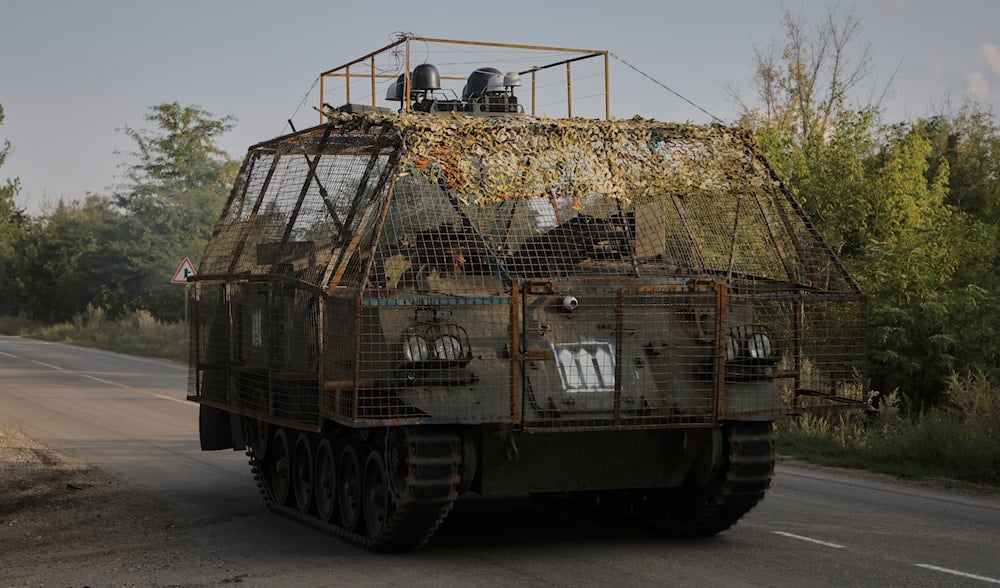European officials fear new Russian offensive in Donetsk
European leaders fear a renewed Russian offensive as discussions intensify over long-term security guarantees for Kiev.
-

A Ukrainian army APC drives along a street in the town of Kostiantynivka, the site of heavy battles with Russian troops in the Donetsk region on Sunday, August 24, 2025. (AP Photo/Yevhen Titov)
European officials are increasingly anxious about a possible renewed Russian offensive in Ukraine, particularly as military activity intensifies near Pokrovsk, a strategic city in the Donetsk region.
During a recent security council meeting in Toulon, German and French authorities reviewed intelligence reports indicating significant Russian troop movements outside the city, as reported by the Financial Times.
According to Ukrainian President Volodymyr Zelensky, approximately 100,000 Russian soldiers have been repositioned near the frontlines around Pokrovsk.
Russian forces have long sought to encircle and capture the city. Should Russia conquer Pokrovsk, it would pave the way for further advances on Kramatorsk and Sloviansk, two key urban centers in Donetsk that remain under Ukrainian control.
Talks intensify over security guarantees for Ukraine
European leaders' primary focus lies in securing long-term defense arrangements for Ukraine. A recent gathering of the so-called coalition of the willing in Paris aimed to finalize a unified European stance on post-war security guarantees. The meeting included heads of state from the Netherlands, Poland, and France, with leaders from the UK, Italy, Germany, and US Special Envoy Steve Witkoff participating virtually.
French President Emmanuel Macron emphasized Europe’s readiness to support Ukraine, stating during a joint appearance with Zelensky that the continent stands committed to ensuring Kiev’s security. Discussions are also expected to broaden to include US President Donald Trump.
Europe pushes for US commitment, harsher sanctions
Per the Financial Times, European officials hope to extract clear pledges from Washington regarding its role in Ukraine’s future security, while urging the US to intensify sanctions against Russia.
NATO Secretary General Mark Rutte highlighted the importance of a consolidated transatlantic approach. He stated that once European talks are finalized, there would be an opportunity for deeper engagement with the US to solidify the security framework.
One of the more divisive issues remains the potential deployment of foreign troops to Ukraine after a ceasefire. While some European states are open to the idea, others remain cautious. Trump has ruled out sending US ground forces but suggested that Washington could provide aerial and intelligence support.
US Ambassador to NATO Matthew G. Whitaker remarked that any final security structure must be acceptable not only to Ukraine but also to Russia. This stance underscores the complexity of any potential post-war agreement.
Moscow escalates airstrikes
Thus far in Russia's ongoing summer offensive, Russian forces have made what the Financial Times described as marginal territorial gains, about 2,033 square kilometers from May to August, or roughly 0.3% of Ukraine’s territory.
However, air raids have intensified significantly. July marked the deadliest month for Ukrainian civilians since May 2022, with 589 fatalities and over 1,150 injuries, according to UN data.
As Russia continues to advance in Ukraine, Zelensky and his allies are focusing on enhancing Ukraine’s military capabilities. German Chancellor Friedrich Merz described this effort as the "most important security guarantee" that can be offered.
He stressed that support for Ukraine’s military forces must persist throughout any future peace negotiations. "Ukraine must be able to defend itself in the long term, and we want to help it do so, both now and in the future," Merz said.

 3 Min Read
3 Min Read









